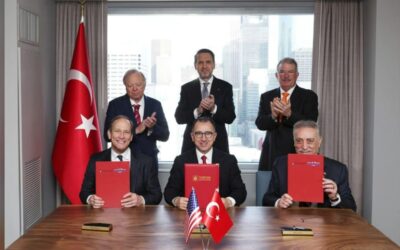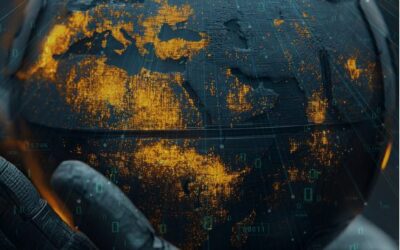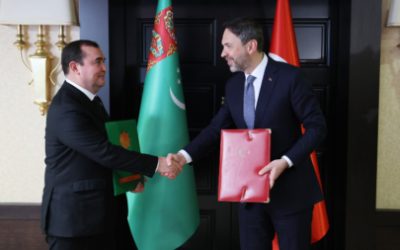Today, on the political map of the world, there are six independent Turkic states and dozens of Turkic communities living in different states with different political, economic and cultural autonomy statuses and their local self-government bodies. However, there are many Turkic communities in the territories of a number of states that are still unable to realize their fundamental rights. The independence of the Turkic Republics within the USSR in the 1990s opened up great prospects for the Turkic world, and today Azerbaijan, Turkmenistan, Uzbekistan, Kazakhstan and Kyrgyzstan, which emerged from the last Eurasian empire, are strengthening the foundations of national independence. Each of these nations strives to bring their states to a stronger, more modern structure.
Undoubtedly, being independent and strong is an important factor for the state, but at the same time, the unity of the Turkic world is the most reliable guarantee of both our independence and strength. So far, certain steps have been taken in this direction, numerous documents adopted today on the relations among the Turkic states for forming the real basis of our relations in all areas, from politics to the economy, culture, science and education. However, against the background of rapid changes in time, deepening globalization trends, as well as the new geopolitical situation, there is a need to take more purposeful steps.
The suspension of decades of negotiations between Turkey and the European Union, as well as the realities of the obstacles created by external powers in resolving the Nagorno-Karabakh conflict, the inability of the Central Asian Turkic Republics to be completely free from the influence of the former empire necessitate deepen the alliance among the Turkic states and establish its working political basis. This is a historic opportunity for us, and a great opportunity for the world to contribute to peace and stability in Eurasia.
The basic foundations that make Turkic unity possible and necessary exist historically and remain relevant today. Belonging to the same code of civilization, language, religion and cultural identity, as well as direct geographical connection between the independent Turkic nation-states and, most importantly, the mutual attraction of the people in all Turkic states – all these are prerequisites for international unity.
The Turkic states must define a single platform where the problems of all Turkic states are discussed and presented to the world political arena from a single platform and a common Turkic position. The most appropriate model for creating this single platform is to take Azerbaijani-Turkish relations as an example.
There are political circles trying to prevent strengthening and unification of Turkic world. However, despite all these barriers and “zero effectiveness” of the Minsk Group and the support of foreign patrons of Armenia over the years, Azerbaijan has implemented the UN resolutions itself. Under the leadership of President Ilham Aliyev, Azerbaijan liberated its ancient lands from occupation. Every day during the 44-day Patriotic War, the President of Turkey, Mr. Recep Tayyip Erdogan, as well as individual Turkish officials and ordinary people have resolutely supported Azerbaijan and have expressed confidence that Azerbaijan is not alone. President Recep Tayyip Erdogan was the first to congratulate President Ilham Aliyev and the people of Azerbaijan on the liberation of Shusha. The Turkish Council issued a statement in support of Azerbaijan on September 28, 2020, a day after the war.
In fact, while the 44-day Patriotic War resulted in ensuring the territorial integrity of Azerbaijan, on the other hand, it proved that a new geopolitical situation has emerged, which necessitates a closer alliance of sovereign Turkic nation-states. Thus, the foreign policy pursued by Turkey under the leadership of Recep Tayyip Erdogan without any obedient ally of any state, the position of the West on military operations in Libya and Syria, as well as the purchase of S-400s, Azerbaijan’s unconditional support for Turkey’s position during the French pressure to squeeze Turkey in order to seize energy resources in the Eastern Mediterranean, as well as the independent foreign policy pursued by President Ilham Aliyev, Azerbaijan’s victory in the Second Karabakh War, Turkey’s firm position on this issue, its support until the last moment, at the same time, the peak of external influences and pressures on Azerbaijan and Turkey once again proved the necessity of further cooperation of the Turkic states. The situation shows that it is time for us to be mobilized against any threat.
At the same time, it should be noted that the problems of the Turkic states are not limited to the Karabakh and Cyprus issue or the jealousy of the independent and strong policy pursued by Turkey or Azerbaijan, at the same time, the Turkic Republics of Central Asia face great difficulties in using their territories and economic potential in the interests of their peoples. Turkmenistan, Uzbekistan, Kazakhstan and Kyrgyzstan have limited opportunities to pursue independent policies on their own. No matter how much they try to pursue an independent policy, in the face of pressure from the great powers, they sometimes have to compromise their national interests in accordance with the conjuncture of international politics. All these factors necessitate an alliance between the Turkic states.
In this regard, the Informal Summit of the Cooperation Council of Turkic Speaking States held by video conference on March 31, 2021, the statements made and the messages given are another manifestation of the intention to further strengthen cooperation between the Turkic-speaking countries.
At the Informal Summit of the Cooperation Council of Turkic Speaking States via video conference, Turkish President Recep Tayyip Erdogan said, “It is important for all of us to continue to stand by Azerbaijan with all our might to restore and preserve the Turkish heritage in Karabakh.” His voice was, in fact, a clear message calling on the Turkic states to unite.
Although each Turkic state pursues an independent policy, they must be united to respond to the pressures of the great powers. Recent events in the region have once again proved this reality. Azerbaijan is considered the gateway to the west and the east, and has managed to create a hub of international transport communications. It is through Azerbaijan that the West and the East establish contacts, trade, exchange scientific and technical experience, as well as cultural values. During Informal Summit of the Cooperation Council of Turkic Speaking States via video conference, Turkish President Recep Tayyip Erdogan said that 63 out of 67 mosques in the Karabakh region were destroyed and churches were destroyed. Today, Azerbaijan has begun restoration work in the destroyed areas, preventing Armenian fascism and providing historical service to the Turkic world. Today, under the leadership of President Ilham Aliyev, Azerbaijan, while restoring the destroyed mosques, historical and cultural monuments in Karabakh, in fact owns and protects in principle the cultural and religious heritage that is valuable not only to itself but to the entire Islamic world.
At the same time, emphasizing the importance of the Zangazur corridor and the opening of communication with Nakhchivan for the Turkic world, Mr. President Ilham Aliyev has always openly stated the importance of this issue. Thus, at the IX Summit of the Heads of State of the Turkic-speaking countries in Nakhchivan on October 3, 2009 and the VII Summit of the Cooperation Council of Turkic Speaking States in Baku on October 15, 2019, President Ilham Aliyev noted that the Zangazur region was once the historical land of Azerbaijan. He said that he was torn from Azerbaijan and united with Armenia in order to divide the Turkic world. With the demolition of Zangazur, the activity of the Turkic world on a single platform was hindered. However, Mr. President, who kept this issue relevant, always said that with the decisions taken and steps taken among the Turkic world, we will further strengthen our activities. From this point of view, a new format of cooperation between the Turkic states was established at the Summit of Heads of State held in Nakhchivan, the ancient city of Azerbaijan, in October 2009. The decision to establish the Turkic Council was made at the Summit in Nakhchivan and became of great symbolic importance for the Turkic world.
Nursultan Nazarbayev, the First President of Kazakhstan and Honorary Chairman of the Turkic Council, also stressed in his speech that Turkey played an important role in restoring the territorial integrity of Azerbaijan at the informal summit of the Cooperation Council of Turkic Speaking States via video conference. The document “The future of the Turkic world – 2040” proposed by Nursultan Nazarbayev is very important. From the point of view that and taking into account all above mentioned facts, yes, today the Turkic states are independent and strong, but being independent and strong are not enough, we must also be together. Being together is the surest guarantee of being strong.
Shabnam HASANOVA
Political Analyst
Baku, Azerbaijan


